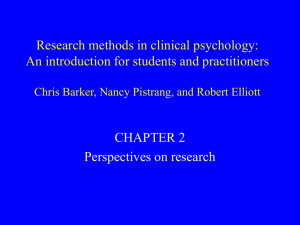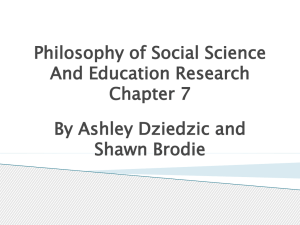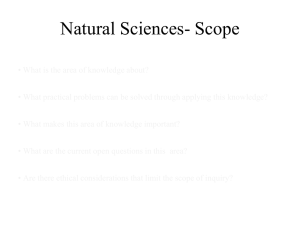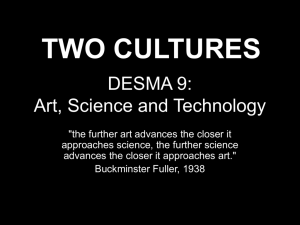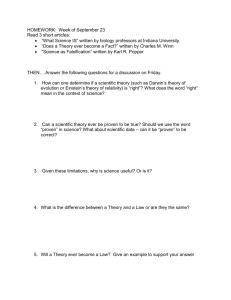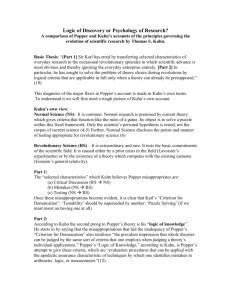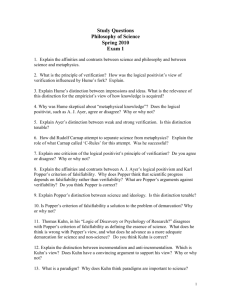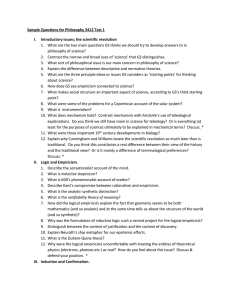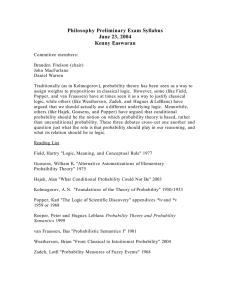PHI 2206 Philosophy of Science
advertisement
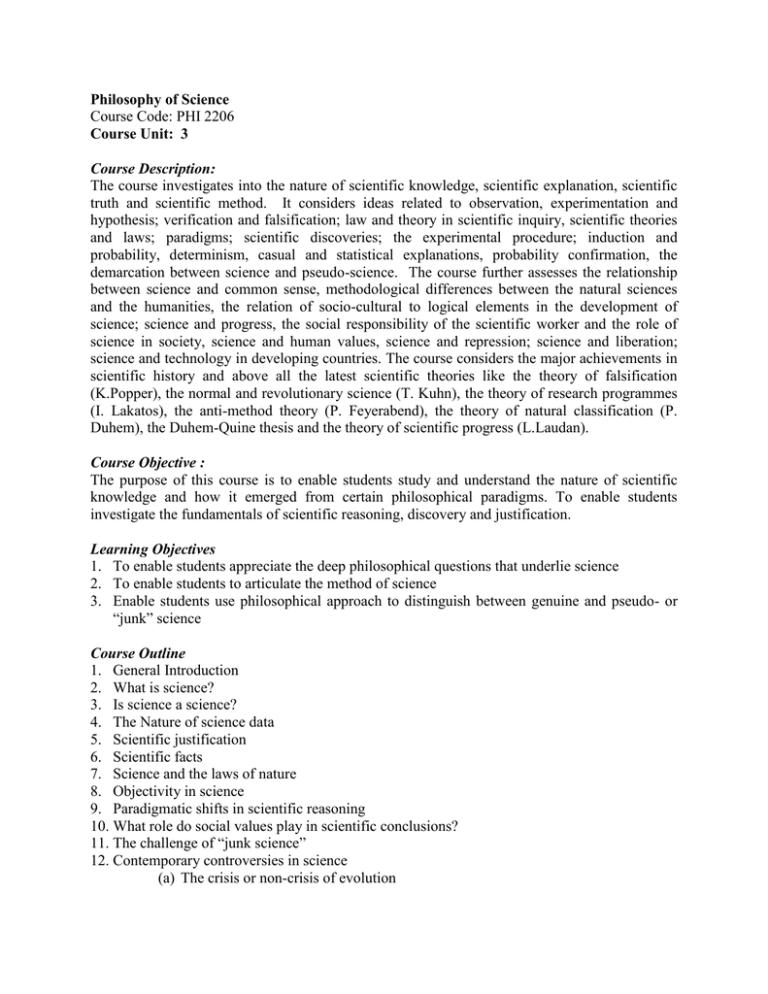
Philosophy of Science Course Code: PHI 2206 Course Unit: 3 Course Description: The course investigates into the nature of scientific knowledge, scientific explanation, scientific truth and scientific method. It considers ideas related to observation, experimentation and hypothesis; verification and falsification; law and theory in scientific inquiry, scientific theories and laws; paradigms; scientific discoveries; the experimental procedure; induction and probability, determinism, casual and statistical explanations, probability confirmation, the demarcation between science and pseudo-science. The course further assesses the relationship between science and common sense, methodological differences between the natural sciences and the humanities, the relation of socio-cultural to logical elements in the development of science; science and progress, the social responsibility of the scientific worker and the role of science in society, science and human values, science and repression; science and liberation; science and technology in developing countries. The course considers the major achievements in scientific history and above all the latest scientific theories like the theory of falsification (K.Popper), the normal and revolutionary science (T. Kuhn), the theory of research programmes (I. Lakatos), the anti-method theory (P. Feyerabend), the theory of natural classification (P. Duhem), the Duhem-Quine thesis and the theory of scientific progress (L.Laudan). Course Objective : The purpose of this course is to enable students study and understand the nature of scientific knowledge and how it emerged from certain philosophical paradigms. To enable students investigate the fundamentals of scientific reasoning, discovery and justification. Learning Objectives 1. To enable students appreciate the deep philosophical questions that underlie science 2. To enable students to articulate the method of science 3. Enable students use philosophical approach to distinguish between genuine and pseudo- or “junk” science Course Outline 1. General Introduction 2. What is science? 3. Is science a science? 4. The Nature of science data 5. Scientific justification 6. Scientific facts 7. Science and the laws of nature 8. Objectivity in science 9. Paradigmatic shifts in scientific reasoning 10. What role do social values play in scientific conclusions? 11. The challenge of “junk science” 12. Contemporary controversies in science (a) The crisis or non-crisis of evolution (b) Neuroscience’s pretensions (c) Science and Climate change politics Methodology Lectures, tutorials, guest lecturers, group work, individual presentations Assessment Mode Course work exercises 30% End of semester examination 70% Reading List 1. A.J Ayer, “The Elimination of Metaphysics” 2. Karl Popper, “Science: Conjectures and Refutations,” 3. Karl Popper , “Darwinism as a Metaphysical Research Program” 4. Don Gillies, Philosophy of Science in the Twentieth Century (Blackwells) 5. Theodore Schick, Readings in the Philosophy of Science: From Positivism to Postmodernism (McGraw-Hill, 1999) 6. Thomas Kuhn, “Logic of Discovery or Psychology of Research” 7. Thomas Kuhn, from The Structure of Scientific Revolutions 8. Larry Laudan, “Science at the Bar—Causes for Concern” 9. Michael Huemer, Skepticism and the Veil of Perception 10. Rom Harre, Principles of Scientific Thinking 11. George Reisch, “Pluralism, Logical Empiricism, and the Problem of Pseudoscience” 12. Stephen Cole, “Voodoo Sociology: Recent Developments in the Sociology of Science” 13. John Searle, from The Construction of Social Reality 14. Tara Smith, “Social Objectivity and the Objectivity of Value”
